East of Eden (1955)
“Some day, he’s going to know who his real son is.”
|
Synopsis: |
|
Genres, Themes, Actors, and Directors:
Response to Peary’s Review: East of Eden is best known as one of only three movies Dean starred in before his untimely death at the age of 24, and quite a bit has been written about his involvement in the film — including his initial casting; his method-informed acting style (as well as his awe for Brando); his challenging interactions with the more-traditional Massey (which Kazan milked for all its on-screen potential): … and his deep emotionality both on and off set (Harris reports he sobbed for hours after shooting was over). Today, unfortunately, Dean’s performance comes across as distractingly hyper-kinetic. In his review for the New York Times, Bosley Crowther referred to Dean as “a mass of histrionic gingerbread”, and this wry description holds somewhat true: Dean’s all-pervasive angst means he’s literally never still or untroubled. Ironically, his role within such a broadly melodramatic, biblically-inspired narrative ultimately feels less convincing than his similar turn in the more intimately-themed Rebel Without a Cause (1955) (though Peary disagrees with me, nominating his performance here as one of the best of the year in his Alternate Oscars). Top-billed Harris gives a highly emotional and affecting performance (she’s also nominated by Peary), but one that — like Dean’s — simply never lets up. Davalos, meanwhile, is bland and forgettable; it’s too bad Paul Newman, who tested for the part, wasn’t cast instead! Redeeming Qualities and Moments: Must See? Links: |
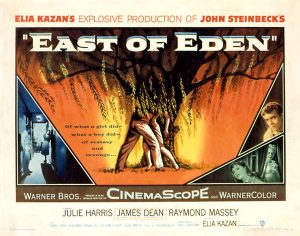
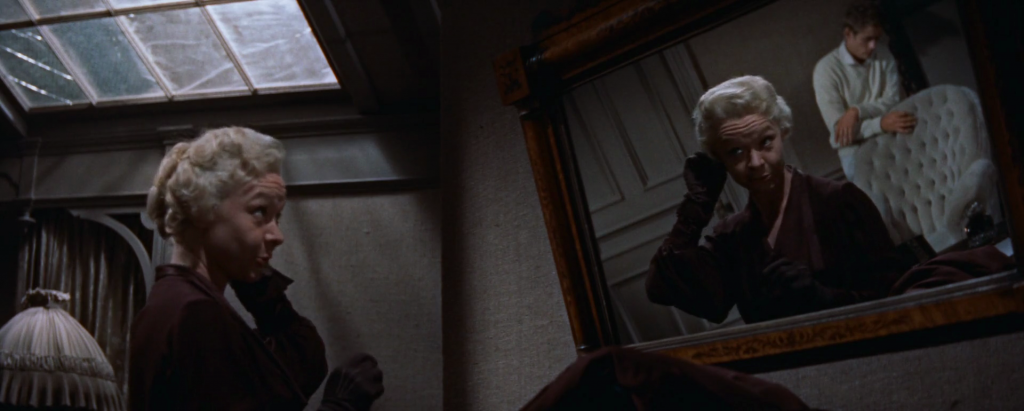
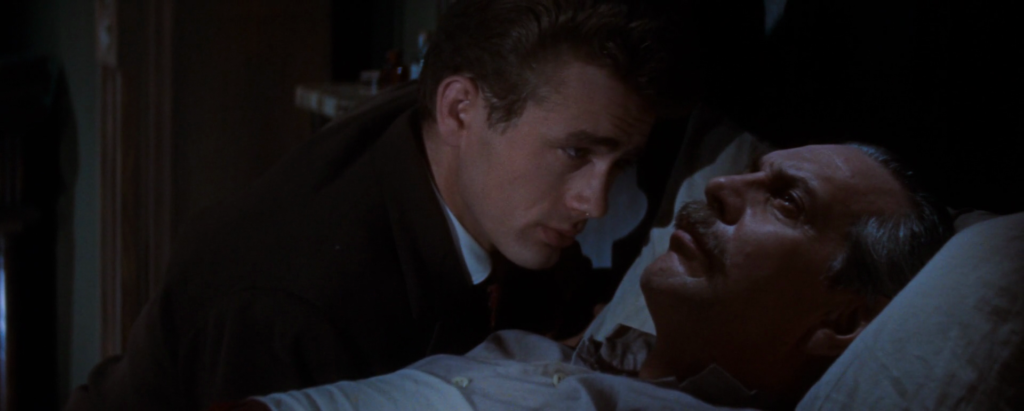
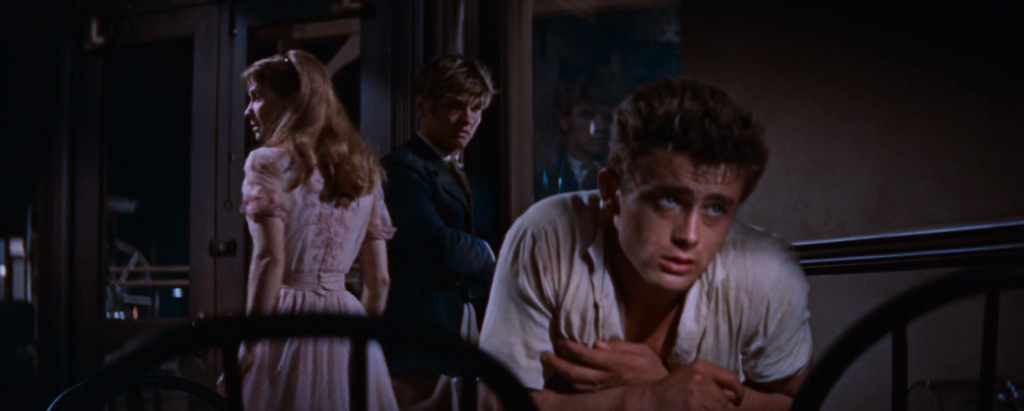
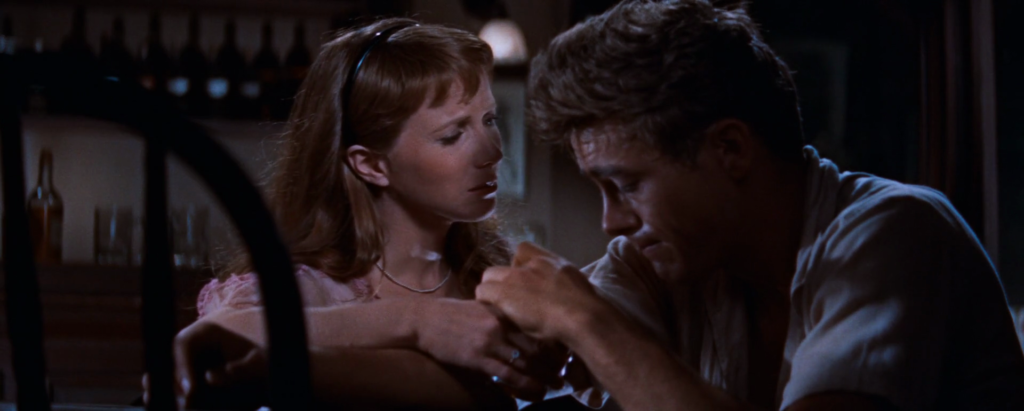
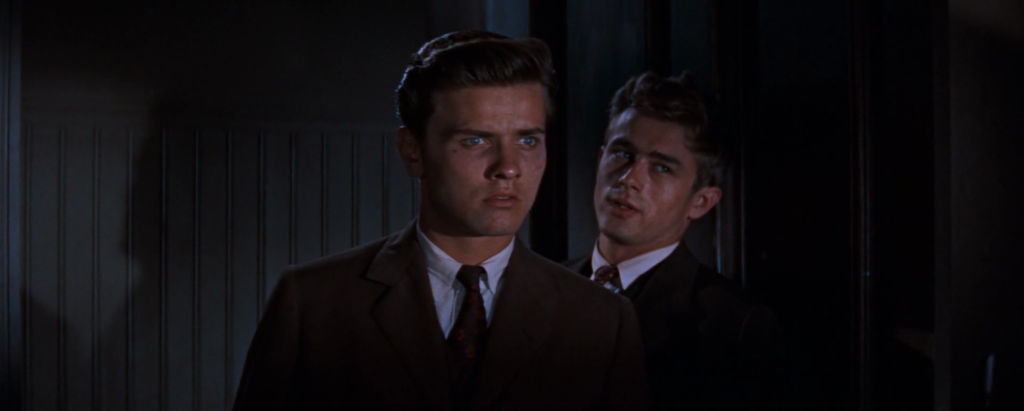
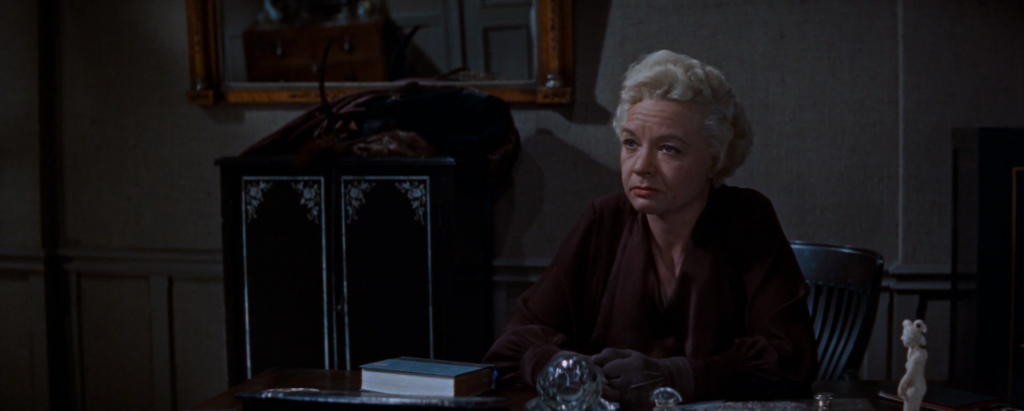
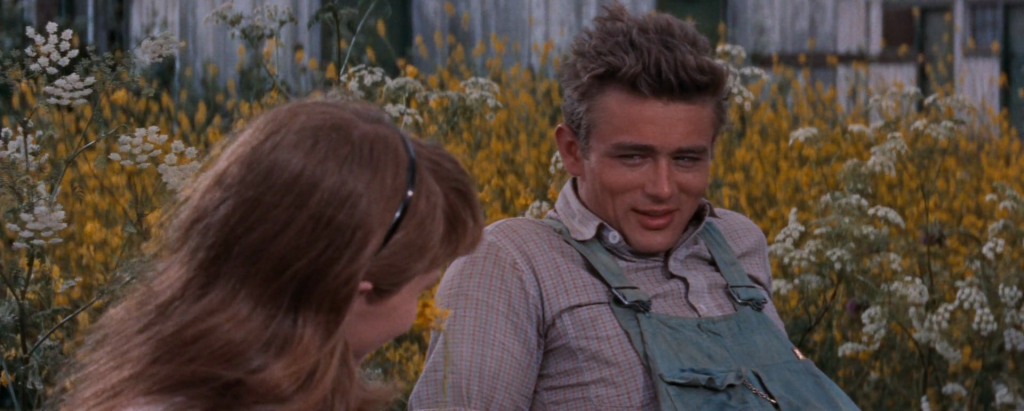
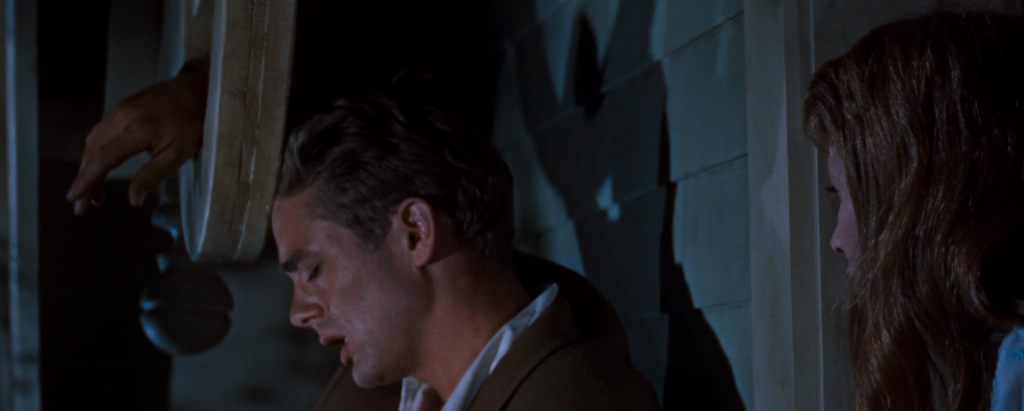
3 thoughts on “East of Eden (1955)”
The assessment given here is a rare occasion in which I am genuinely surprised that the ultimate ‘must see?’ decision is ‘no’. Not that I disagree with that decision (more on that to follow) but I would have expected it to get a ‘once-must’ for either Kazan’s direction or for its status as an admired American classic…or for Dean’s performance (not that I think it’s a great performance either, it’s just that he has so many fans to this day).
But I’m actually glad that the decision is ‘no’. I saw the film a few times as I was growing up, and never much cared for it. It’s just so overdone and I don’t think I could ever sit through it again, frankly.
And, honestly, I never personally got the whole James Dean thing. He’s most effective in ‘Rebel Without a Cause’ but I don’t think much of him as an actor, overall.
It was about 12+ years ago that I finally got around to reading the novel…which I fell madly in love with…and which also made the film seem almost insignificant. Steinbeck’s book more or less quickly made it into my Top Ten Favorite reading experiences.
If I remember anything vividly from the film, it’s the scene (or scenes?) involving Van Fleet. Not that I was all that much of a fan of hers in general…but there was something memorable there.
As a side note, Van Fleet appears in James Grissom’s book ‘Follies of God’…as one of the many women Grissom interviewed, who had all worked with Tennessee Williams at one time or another. The portrait of Van Fleet in Grissom’s book sticks out as uniquely odd and pathetic (compared with all of the other women interviewed). Apparently JVF thought VERY VERY highly of herself and her talent – and never let people forget it. The picture of her final days is hard to witness in print, actually.
Interestingly, I was genuinely surprised by my own “no” too — but I just couldn’t in good conscience tell film fanatics they HAVE to see this. They’ll probably want to once, and I don’t blame them… But, no. I was unimpressed.
An interesting (and distressing) anecdote about Van Fleet… I like her performances a lot (in this and Kazan’s “Wild River”) but too bad she was so in love with her own talent.